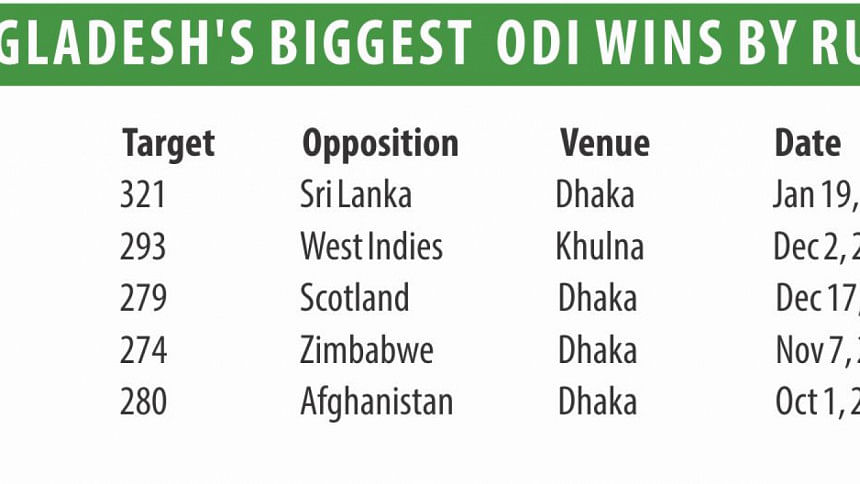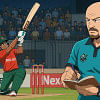Tigers ace battle of inside knowledge

Leading up to what has virtually become a grudge match in the eyes of many home fans, chiefly because of the presence of former Bangladesh coach Chandika Hathurusingha in the opposition camp, the talk has mostly been about the advantage that the Sri Lankans will have because of their coach's insights into the Bangladesh team. Bangladesh technical director Khaled Mahmud, who stepped into the breach after Hathurusingha's sudden resignation last October, said that it was a two-way street -- the hosts also had a fairly good idea about the way the Sri Lankan's mind worked.
On the evidence of the Tigers' 163-run win yesterday, their inside knowledge trumped their former coach's. The first evidence of it was the decision at the toss to bat first. Sri Lanka had won the toss and fielded first in their first tri-series match against Zimbabwe, presumably because Hathurusingha knew about the dew factor that would handicap the spinners at night. The Tigers seemed to anticipate this decision and took luck out of the equation, picking a fourth seamer in Mohammad Saifuddin and choosing to bat first – a decision that paid dividends in their clinical defence of 320 for seven.
They then seemed to anticipate the line of attack their former coach would lay out for his current charges.

Sri Lanka went into the match with three pacers, but none among Nuwan Pradeep, Suranga Lakmal and Thisara Perera can be described as out-and-out fast. Yet they proceeded to unleash a barrage of short balls against openers Tamim Iqbal, Anamul Haque and number three Shakib Al Hasan. Hathurusingha was in charge of Bangladesh in September-October 2017 when, on the tour of South Africa the batsmen struggled against the short ball. He may have taken his cue from that but the bouncer barrage backfired yesterday. While Anamul did fall edging a hook to a slightly wayward bouncer from Perera, it actually worked against the Lankans as it falsely gave them the impression that the ploy was working.
Mashrafe and Co would have known what Hathurusingha, who was coaching them less than four months ago, thought of each batsman's strengths and weaknesses, and they were prepared for it. Perera did hit Tamim on the helmet when the left-hander went through the hook too early in the 19th over, but he brushed it aside and slapped the next ball -- another bouncer -- for four. Shakib similarly went through a pull early from Lakmal – a sign that the batsmen were on the lookout for the short ball – and edged it onto his helmet but the ball landed safely. Like Anamul's dismissal, this only spurred the bowlers down an erroneous path.

Sri Lanka and Hathurusingha, however, erred in target selection because neither Shakib nor Tamim have a history of being bothered by the bouncer, let alone ill-directed ones. Tamim cut another short Perera ball for four in his next over, Shakib pulled Pradeep to the fence with ease once, and Lakmal twice. When they were not hitting boundaries, they were dabbing the short stuff to third man and fine leg for easy singles. Mushfiqur Rahim, who came in after Shakib's dismissal, carried on in much the same manner.
The bouncer works particularly well when it is used as a surprise weapon as the fastest bowler on either side, Bangladesh's Rubel Hossain, proved later in the match, but Sri Lanka had lost that element by their over-eagerness to bowl short and also, perhaps, with Hathurusingha's presence in the dressing room.
"We noticed something about Bangladesh's batting unit," said Perera after the match when asked if bowling short at Bangladesh was a deliberate ploy. "They don't expect bouncers so we planned to bowl bouncers."
Before the tri-series started, when asked whether they would try anything different to counter the presence of Hathurusingha in the opposition, Bangladesh skipper Mashrafe Bin Mortaza said that it was good to be smart in cricket, but not over-smart. They proved yesterday that by playing their usual brand of cricket and making one or two educated guesses about their former coach, they can come out on top.


 For all latest news, follow The Daily Star's Google News channel.
For all latest news, follow The Daily Star's Google News channel. 








Comments